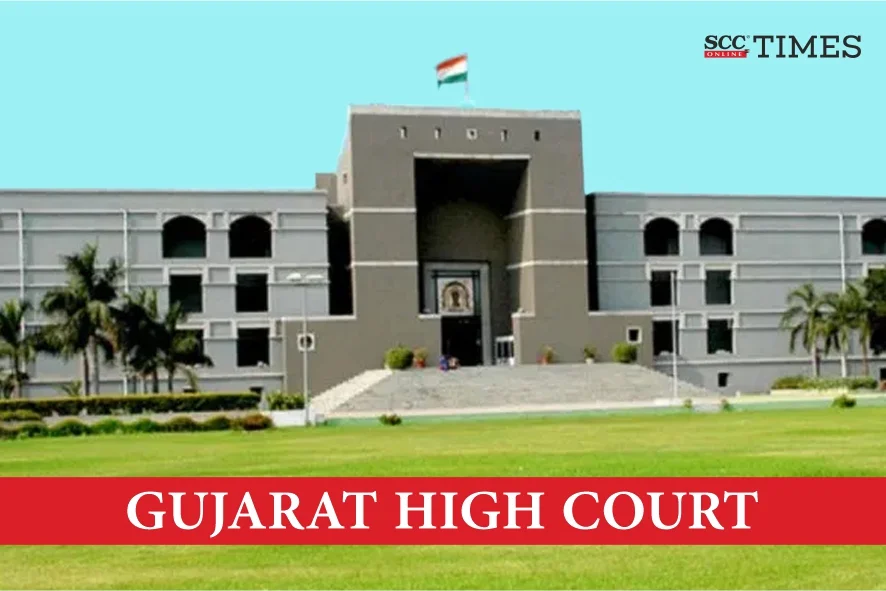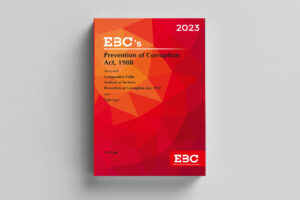Gujarat High Court: In a regular bail application filed under Section 439 of the Criminal Procedure Code, 1973 (‘CrPC’) by a retired IAS Officer accused under the Penal Code, 1860 (‘IPC’) and the Prevention of Corruption Act, 1988 (‘PCA’), Divyesh A Joshi, J. rejected the application saying the person is very influential and he has every chance to mislead the case.
The accused happened to be the District Collector (‘DC’) of Kachchh-Bhuj at a time when a Non-agricultural Permission (‘NA Permission’) for a piece of land in the district was granted to a co-accused in this case. The allegations leveled against the accused were that in order to gain some undue monetary benefit, the accused performed its duties dishonestly and allotted the government land in favour of a co-accused for lesser price compared to its actual value by making illegal conversation of the land from non-agricultural to residential land thereby committed criminal breach of trust to the Government by misusing his powers in an illegal and arbitrary manner which has caused a loss of crores of rupees to the Government exchequer.
The accused has been in judicial custody since the FIR was filed in September 2023.
The Bench, in lieu of Raj Kishor Roy v Kamleshwar Pandey, 2002 (6) SCC 543, observed that prior sanction to prosecute a public servant can be raised at any time with the appropriate authority once the cognizance of offence is taken. The same may be even at the time of conclusion of trial.
The Court further suggested that the applicant can raise the question whether the sanction is necessary or not before the Trial Court when it is evaluating the evidence and trying the case on merits. The Bench also mentioned that the said issue is also at large before the Larger Bench of the Apex Court and therefore touching the issue of sanction at this stage would be a futile exercise.
Upon perusal of the Section 7 of the PCA, the bench opined that it is immaterial whether such person being a public servant accepts or attempts to obtain the undue advantage directly or through a third party.
The Court made special reference to the Apex Court’s considerations to grant or refuse bail in a non-bailable offence. It cited Gurucharan Singh v State, (1978) 1 SCC 118, to clarify that there is no hard and fast rule and no inflexible principle governing the exercise of such discretion by the Courts.
The Bench found it appropriate to mention that the findings recorded by the Court for grant or refusal of bail are tentative and will not have any bearing on the merits of the case.
The Bench referred to Mallampati Gandhi v. State of Telangana, 2018 SCC OnLine SC 2968 and Nimmagadda Prasad v. Central Bureau of Investigation, (2013) 7 SCC 466, to highlight that the country has been seeing an alarming rise in white-collar crimes, which has affected the fibre of the country’s economic structure. Economic offence having deep rooted conspiracies involving huge loss of public funds needs to be viewed seriously and considered as a grave offence affecting the economy of the country as a whole and thereby posing serious threat to the financial health of the country.
The Court held that considering the overall materials available on record and the role attributed to the accused as well as the gravity and seriousness of the offence committed by the accused while sitting over the highest post of the Government, this Court is not inclined to exercise any discretion in his favour and grant bail to the accused, hereby, dismissing the appeal.
[Pradeep Nirankarnath Sharma v. State of Gujarat, 2024 SCC OnLine Guj 1813, decided on 20-03-2024]
Advocates who appeared in this case :
For the Petitioner: Advocate R.J. Goswami, Advocate H.B. Champavat
For the Respondent: Additional Advocate General Mitesh Amin, Additional Public Prosecutor L.B. Dabhi









